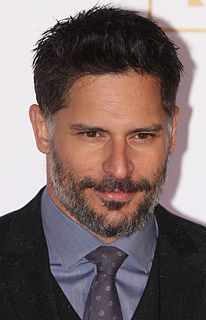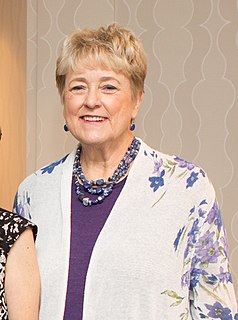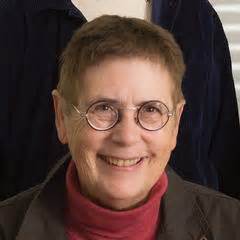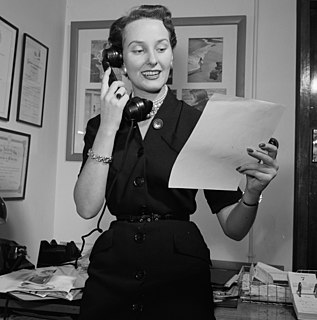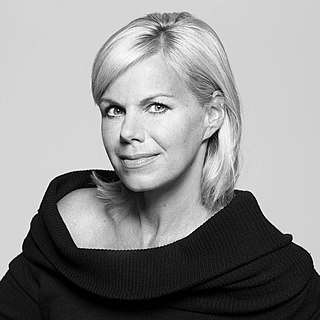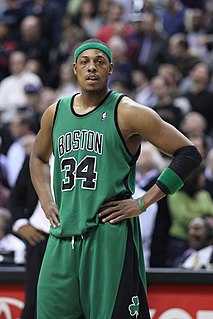A Quote by Ronda Rousey
When women say that going on publications directed at men is somehow demeaning, I don't think that's true. I think that's one really effective way to change the societal standard women are held to.
Related Quotes
I don’t think there’s any such thing as male objectification…I think that word exists only with women because there are societal pressures for them to behave a certain way and to look a certain way. Someone put it to me once: Women are sex objects and men are success objects. That was really interesting to me.
I think the generational change is going to be so important for Africa that we really should encourage and push it as much as we can, because some of these younger men and women, who are men and women of their times, and are also connected to the rest of the world, wouldn't even know how to behave in the way some of the old leaders do.
I wish you would stop and seriously consider, as a broad and long-term feminist political strategy, the conversion of women to a woman-identified and woman-directed sexuality and eroticism, as a way of breaking the grip of men on women's minds and women's bodies, of removing women from the chronic attachment to the primary situations of sexual and physical violence that is rained upon women by men, and as a way of promoting women's firm and reliable bonding against oppression. . . .
It's true that in a lot of western feminist movements, you see women working singularly from men. Suffragettes and the women's rights movement in the 60s here, but when I think of the Islamic feminist movement, I think of a lot of men who are very much standing with the women. It really feels like in equal numbers. Women are catching up in the field because we were not given access to knowledge and encouraged into these studies and so these men are helping us and empowering us. They are men of conscience who are fed up with this assumption that they're entitled.
I think everybody who really wants to change things has to allow themselves to be angry in a constructive way, and you have to fully understand the thing you're trying to change. We really need to get serious about this now; there needs to be real, effective programs. I think there needs to be a little bit more strategy involved and a little more realism, to be pragmatic and realistic, looking at the way we as women contribute to the problem. Once the second half of the population stops doing it, it's going to end.
I'm very much for helping create women who are going to be successful women. I don't like women who imitate men, who want to emasculate men. I think women should be feminine. That does not mean a 'air-brain' or someone who is not strong. I think real strength is strength of character, not the ability to push everyone around.
Women have been trained in our culture and society to ask for what we want instead of taking what we want. We've been really indoctrinated with this culture of permission. I think it's true for women, and I think it's true for people of color. It's historic, and it's unfortunate and has somehow become part of our DNA. But that time has passed.
[Demystifying lesbian sex for an interviewer] In a way, the sex isn't really that different... From what I can tell, no, not really. All the things that men and women do together, think of everything that men and women do together, women and women can do together. And that makes you realize that sex is just simply about connecting with another person, or about intimacy.
I really don't see any men sitting in the corner office plotting to keep women out. All the men I know are actively trying to promote women, to get more women involved. These men have wives they care about; they have daughters they desperately care about. So I don't think it's fair to blame men - or I don't think it's accurate to blame men anymore.

